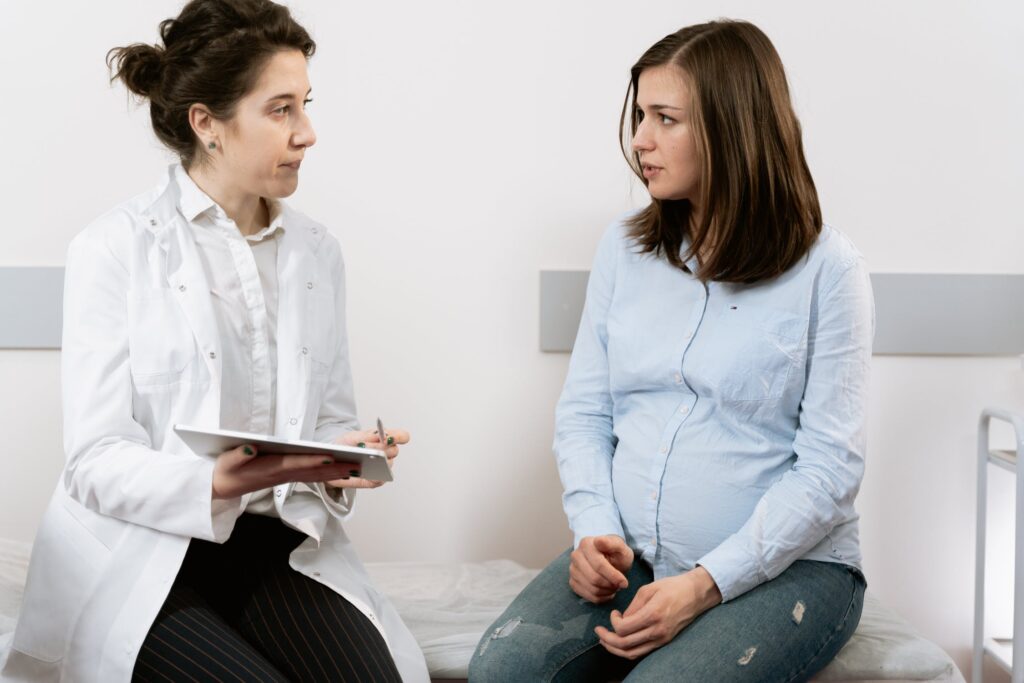Table of Contents
Introduction
Egg donation has been in use for over 35 years and most donors have no side effects or complications and choose to donate multiple times.
Potential Risks of Being an Egg Donor
The main complication that can occur is OHSS-Ovarian Hyperstimulation Syndrome. OHSS consists of the retention of a large amount of fluid in the abdomen after the retrieval procedure. The symptoms include abdominal pain, nausea, vomiting, and sometimes shortness of breath from pressure on the diaphragm.
The main treatment is the passage of time. The excess fluid will eventually be reabsorbed into the bloodstream and eliminated. Medications can be given for nausea and discomfort, but the main treatment is the passage of time.

These days OHSS is very rare. It occurs about 1 to 2% of the time. In the 35 years, that egg donation has been used the procedure has been continuously improved. As with many medical procedures, the risks have greatly diminished over time.
If a donor shows any of the warning signs that she might develop OHSS, her medication dosages will be reduced and that is usually sufficient to prevent it from occurring.
During the retrieval procedure, if the donor shows signs of being likely to develop OHSS, there are additional measures that can be taken to reduce her chances of developing OHSS. Although OHSS is rare, it is something that donors need to be aware of in their decision to become a donor.
Many donors experience bloating after the retrieval procedure. This is not considered a complication and will resolve on its own in one to three days.
Rarely donors may experience moodiness, fatigue, or hair thinning which resolves after the retrieval procedure.
A woman is born with 250,000 to 500,000 eggs so she is not depleting her egg supply by being a donor.
All of the risks and possible side effects of the medications will be reviewed by the egg donor agency and again by the fertility clinic staff before the donor signs the consent forms and begins the process.
In choosing a fertility clinic or an egg donor agency with which to sign up, potential donors should choose an agency or clinic that has several years of experience. Some agencies may provide the opportunity for her to speak with someone who has already donated.
Larger fertility clinics rather than physicians in private practice can be better because they have a larger pool of expertise on which to draw. Thus they can be better at creating a medication protocol that is appropriate for the individual donor and avoiding or managing any side effects or complications
Many young women know someone who has used assisted reproductive technology or they know someone who has been a donor. She can use them to refer her to an agency or clinic. Knowing someone who has donated or someone who has used a donor is often what motivates someone to become a donor.
They can hear firsthand what the experience was like and they may know someone who was able to experience the joy of parenting only with the assistance of a young woman who was willing to give the gift of being a donor.
Additionally, the fertility physician and staff will be available to answer all of a potential donor’s questions during her initial visit for screening and orientation. Most donors have no side effects or complications and choose to donate multiple times and describe the experience as profoundly rewarding.
Final Words
As with anything in life, there are risks and benefits and the young women who choose to become donors have weighed the possible risks and benefits and have chosen to move forward. It is not something that every young woman chooses to do.
The couples who are able to realize their dream of starting a family because of the generous young women who choose to become donors are eternally grateful for what is an incredible gift that changes their lives forever.














This article was very informative and detailed, it was a pleasant read. I loved how you gave more detail than other sites about possible complications associated with being an egg donor.